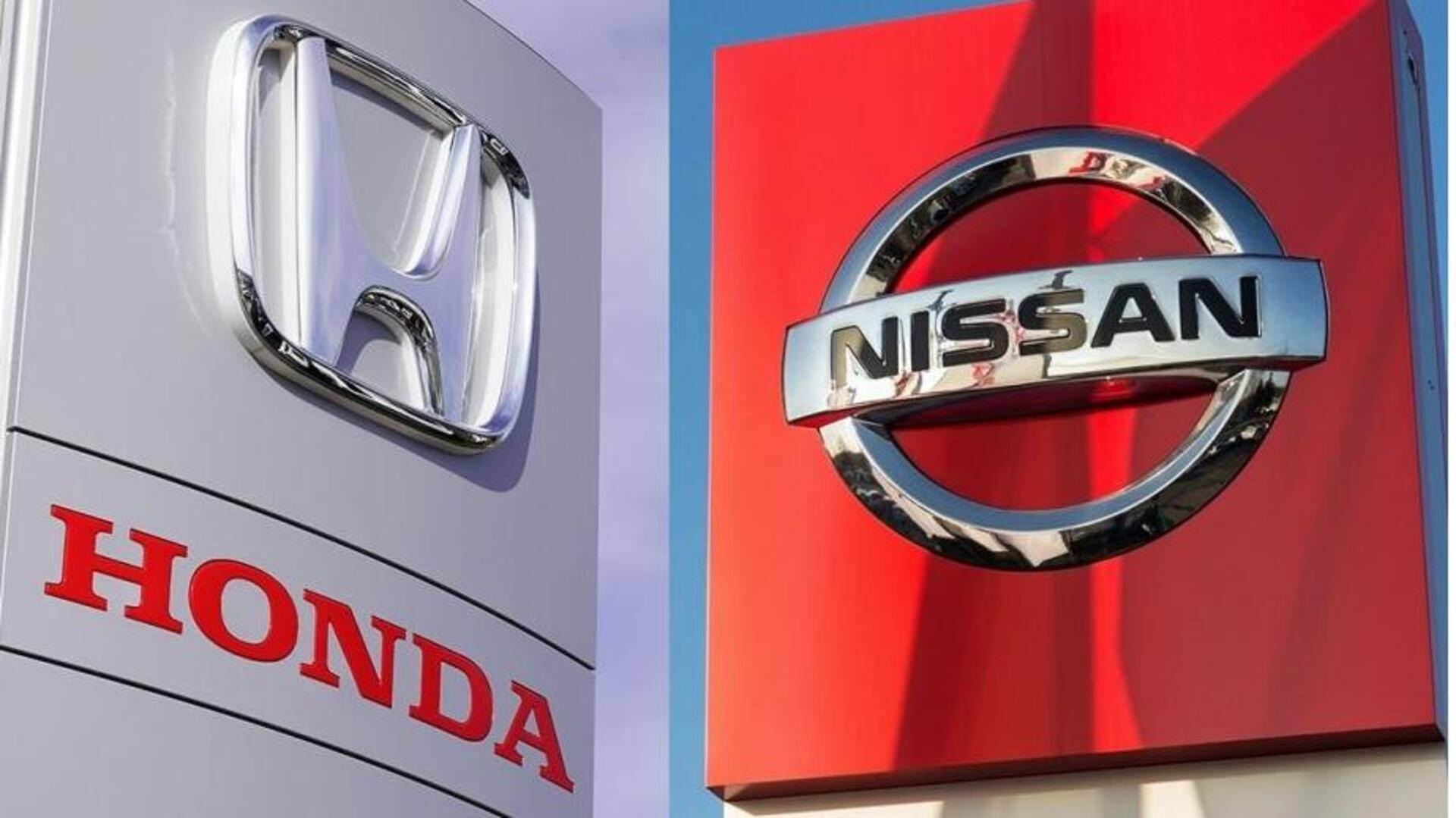
Japan's Honda, Nissan explore joint EV development to counter China
What's the story
Japanese automobile giants Honda and Nissan have officially confirmed their discussions, about a potential partnership for the development of electric vehicles (EVs).
The two automotive giants have concluded a memorandum of understanding to conduct a feasibility study on this matter.
If successful, the collaboration could extend beyond EVs to include joint work on software, possibly related to safety or autonomous driving technologies.
Collaboration
Potential areas of collaboration and shared goals
The collaboration between Honda and Nissan is still in its early stages, with specific areas of cooperation yet to be determined.
However, the partnership could potentially focus on developing automotive software platforms, core components pertaining to EVs, and complementary products.
Both companies have expressed a shared commitment towards achieving zero traffic-accident fatalities and reaching carbon neutrality.
Goal
Joint development could speed up EV production
The proposed partnership between Honda and Nissan could expedite the development of electric vehicles and reduce research and development costs.
The two automakers are considering pooling resources to purchase a common EV powertrain and batteries.
This collaboration could also lead to the creation of a new platform exclusively designed for electric vehicles, enhancing production efficiency.
Insights
Impact on existing partnerships and future plans
The potential collaboration between Honda and Nissan could influence existing partnerships.
Honda's current collaboration with General Motors may be affected, while Nissan is already collaborating with Renault on EVs.
The partnership could also extend to 'kei car' production, a segment featuring compact vehicles primarily for the domestic market.
Despite these discussions, a jointly developed platform or vehicle is unlikely to emerge in next few years unless a final deal is agreed upon.
Competition
Competitive landscape and future aspirations
The potential collaboration between Honda and Nissan comes amid intensifying competition in the EV market from Chinese manufacturers, Tesla, Volkswagen Group, and Stellantis.
Both companies aim to stay competitive and not lag behind. Honda has set out ambitious targets to transition to 100% electric and fuel cell vehicle sales by 2040.
Meanwhile, Nissan continues its partnership with Renault, focusing on EVs within the European market.
Information
China in crosshairs of Nissan, Honda
The joint initiative by Honda and Nissan aims to take down China, which rules the roost in the EV sector. In 2022, EVs accounted for 20% of the auto sales in China which helped Chinese carmakers surpass Japan's dominance in the EV market in 2023.